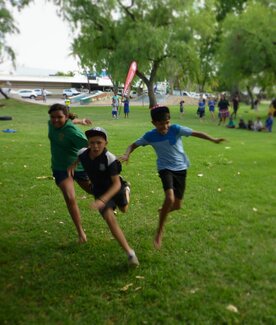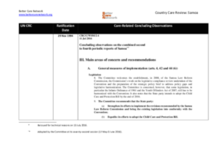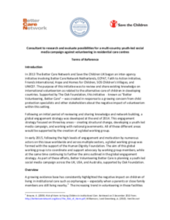

Displaying 561 - 570 of 673
This article and video discuss how thousands of Australians consider visiting orphanages to be a popular activity to do on vacation. Vacationers will visit orphanages, meet children, and take photos. The visit usually ends with a request for donations. Some believe that they are positively contributing to improvement of these children’s lives.
A short piece from Australia discussing the need to extend the foster care age limit.
This paper discusses a large evaluation study that attempts to describe the impacts of the alcohol control laws enacted in various indigenous communities. Participants were interviewed and asked to give their thoughts on how the laws have affected them medically, economically and socially.
This country care review includes the care-related Concluding Observations adopted by the Committee on the Rights of the Child.
The Government of Nauru has introduced a new Child Protection and Welfare Act which has been welcomed by UNICEF for “bringing Nauru into alignment with many international standards.”
The Ministry for Families and Children of the Parliament of Victoria, Australia has announced it will invest nearly $3 million over two years to fund initiatives to reduce the number of Aboriginal children and young people in out-of-home care in Victoria.
This research aimed to gain a better understanding of kinship care, its practice issues, and its role in the South Australian alternative care system.
The aim of this systematic review was to evaluate the evidence for interventions aimed at improving the quality of contact visits between parents and their children who are in out-of-home care.
This consultancy project consists of a 3 month period to further research and develop plans for a youth-led media campaign in the UK, USA, and Australia.
In this research paper Asnakech Tesfaye explores the expectations of Ethiopian children applying for an Australian Orphan Visa. Tesfaye’s research found children applying for visas expected to get better education, employment, material benefits and living conditions.


